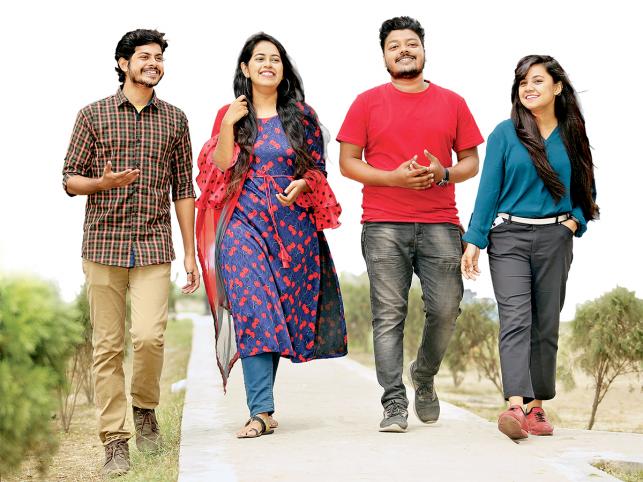Youth happy with politics and economy, not with security
While happy with the political situation, their interest in politics is on a steady wane. They are more interested in social movements such as the movement for reforms in the public service quota system and for road safety.
These trends were revealed in the Prothom Alo Youth Survey 2019. The survey was carried out on 1200 young people between 15 to 30 years of age around the country. Of the respondents, 54.3 per cent felt that personal security was in an extremely poor state, while 23.4 per cent felt it was fairly bad.
Previously, in the 2017 survey, 51.6 per cent of the young people had felt the state of security was bad, with 19.5 per cent saying it was extremely bad. That means the there is an increase in the number of youth feeling that the security situation is extremely bad.
Then again, 40.5 per cent said that the prevailing state of security was good. And 8.4 per cent said it was very good. They were not worried about their personal security. The remaining 5.2 per cent were unsure about the issue.
The female respondents were more apprehensive about security than their male counterparts. Of these young women, 57.21 per cent felt the state of personal security was very bad. For men it was 51 per cent. Urban youth were more concerned about security than rural youth. Of the urban youth, 59 per cent felt that the state of security was very bad, while 52 per cent of the rural youth shared this opinion.
Illiterate people were not concerned much about security. Among them, 63 per cent felt that the state of security was good. The more educated the people were, the more they were concerned about security. And 61 per cent of those with a minimum bachelor’s degree said that security was in a bad state.
Speaking to Prothom Alo about the issue, professor Serajul Islam Choudhury said that the lack of security was felt all over. Road accidents occurred frequently, there was concern about personal security and girls were extremely concerned about their security. There was no guarantee that the young people would get jobs upon completion of their studies. They saw no future ahead. It was the responsibility of the state to ensure security of its citizens, but the state was failing to do so. Such a state of security never prevailed for such an extended period of time. And this insecurity was deepening further.
Serajul Islam Choudhury said the state was being separated from society. The young people felt that from Pakistan the country had become Bangladesh, but the state hadn’t changed. They perhaps felt that is how a state was to be. But there was a growing propensity towards social movements to address certain social problems. The main reason that the youth were shying away from politics was that there has been no student union elections for long in the institutions of higher education, no cultural activities in the localities and no organised activities for the young. Such disinclination towards politics did not bode well for the nation.
Satisfaction with economic development
The Prothom Alo survey indicated that 80 per cent of the youth were satisfied with the country’s economic development. Of them, 27.2 per cent were extremely happy and 52.8 per cent were fairly happy. Then again, 6.4 per cent were very dissatisfied with the economic development and 8 per cent somewhat dissatisfied. And 5.6 per cent were not sure.
There was not too much difference of opinion in this regard among the educated and illiterate, the urban and the rural youth, male and female respondents.
Satisfaction grows with political situation
The political arena is relatively peaceful, with no strikes and hartals for long.
The majority of the young people in the survey, that is 53.8 per cent, were happy with the political situation. Of them, 14.6 per cent were extremely satisfied, 39.1 per cent were fairly satisfied. And 15 per cent said they were not certain about the matter.
The rural youth were happier with the political situation that the urban youth.
The satisfaction with the political situation among the youth has increased over the past two years. The 2017 survey indicated that 48 per cent of the young people were happy with the political situation at the time, with 18 per cent being very dissatisfied and 24.6 being somewhat dissatisfied.
Dhaka University political science teacher Shantanu Majumdar, commenting on the results of the survey, told Prothom Alo that he had carried out a survey on 300 young people in 10 areas and his findings were very similar. The youth were very unhappy with the law and order situation and had numerous complaints against the police. Despite economic development, the youth were concerned about their future.
Shantanu Majumdar said that the youth’s disinclination towards politics was most alarming. He said that the media and the civil society had a role to play in this regard. The continuous exposure of the negative side of the politicians created a negative mindset among the youth concerning politics. He felt the young people were more concerned about their own careers than national problems or that of the society.
* This report appeared in the print edition of Prothom Alo and has been rewritten in English by Ayesha Kabir

